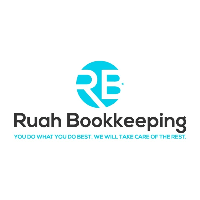Quick Tips to Tidy Up Your Books for a More Efficient, Profitable Business

As a business owner, maintaining tidy and organized financial records is not just a matter of compliance—it’s a fundamental step towards building a more efficient and profitable operation. Clean and accurate books not only provide a clear picture of your business's financial health, but they also streamline decision-making processes and pave the way for strategic growth. To help you achieve this, here are some quick tips to tidy up your books and set the stage for a more efficient and profitable business.
- Consistent Record-Keeping: Establish a consistent system for recording financial transactions. Whether you opt for accounting software or traditional ledgers, maintaining uniformity in your record-keeping process is crucial. This allows for easier tracking, analysis, and reporting.
- Regular Reconciliations: Reconcile bank statements, credit card statements, and other financial accounts on a regular basis. This practice ensures that your records accurately reflect your actual financial position, reduces the risk of errors, and uncovers any discrepancies that may require attention.
- Categorize Transactions Meticulously: Properly categorizing income and expenses is essential for organizing your financial data. It provides clarity when analyzing your business’s financial performance, enables accurate tax reporting, and ensures that you’re able to identify areas where costs can be optimized.
- Stay on Top of Invoicing and Accounts Receivable: Timely and accurate invoicing is crucial for maintaining a steady cash flow. Implement a system to track outstanding invoices, send reminders, and follow up on overdue payments. This can significantly accelerate the inflow of funds to your business.
- Monitor Cash Flow: Regularly monitor your cash flow to understand the ebbs and flows of money within your business. This insight allows you to anticipate any potential shortfalls, allocate resources more effectively, and make informed decisions about investments and expenses.
- Review and Analyze Financial Reports: Take the time to review and analyze key financial reports such as profit and loss statements, balance sheets, and cash flow statements. These reports provide critical insights into the financial health of your business and can guide strategic decision-making.
- Seek Professional Guidance: Consider engaging an accountant or financial advisor to review your books, provide guidance on best practices, and offer strategic financial advice. Their expertise can uncover opportunities for cost savings, tax optimizations, and long-term financial planning.
By implementing these quick tips to tidy up your books, you can lay a strong foundation for a more efficient and profitable business. Tackling your finances with diligence and attention to detail not only ensures compliance and accuracy but also enables you to make informed decisions that can drive sustainable growth and success.
Get in Touch
Connect for Financial Guidance
An email will be sent to our team.
